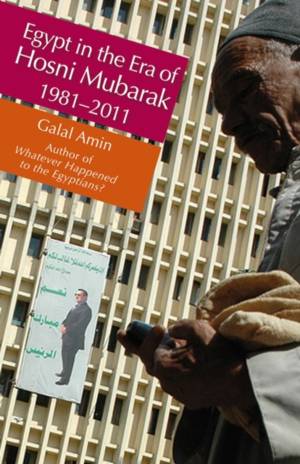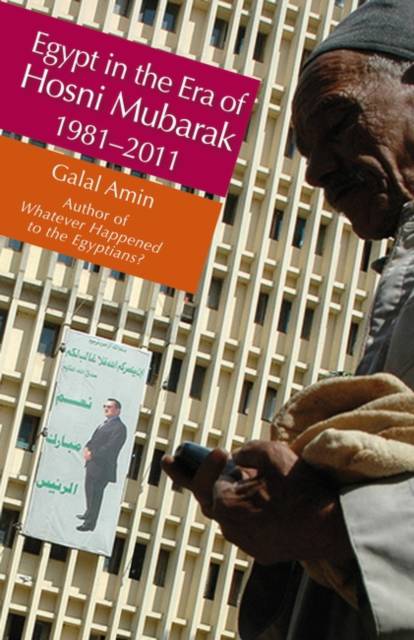
- Afhalen na 1 uur in een winkel met voorraad
- Gratis thuislevering in België vanaf € 30
- Ruim aanbod met 7 miljoen producten
- Afhalen na 1 uur in een winkel met voorraad
- Gratis thuislevering in België vanaf € 30
- Ruim aanbod met 7 miljoen producten
Zoeken
Omschrijving
Galal Amin once again turns his attention to the shaping of Egyptian society and the Egyptian state in the half-century and more that has elapsed since the Nasserite revolution, this time focusing on the era of President Mubarak.
He looks at corruption, poverty, the plight of the middle class, and of course, the economy, and directs his penetrating gaze toward the Mubarak regime's uneasy relationship with the relatively free press it encouraged, the vexing issue of presidential succession, and Egypt's relations with the Arab world and the United States. Addressing such themes from the perspective of an active participant in Egyptian intellectual life throughout the era, Galal Amin portrays the Mubarak regime's stance in the domestic and international arenas as very much a product of history, which, while not exonerating the regime, certainly helps to explain it.
He looks at corruption, poverty, the plight of the middle class, and of course, the economy, and directs his penetrating gaze toward the Mubarak regime's uneasy relationship with the relatively free press it encouraged, the vexing issue of presidential succession, and Egypt's relations with the Arab world and the United States. Addressing such themes from the perspective of an active participant in Egyptian intellectual life throughout the era, Galal Amin portrays the Mubarak regime's stance in the domestic and international arenas as very much a product of history, which, while not exonerating the regime, certainly helps to explain it.
Specificaties
Betrokkenen
- Auteur(s):
- Uitgeverij:
Inhoud
- Aantal bladzijden:
- 173
- Taal:
- Engels
Eigenschappen
- Productcode (EAN):
- 9789774164002
- Verschijningsdatum:
- 1/04/2011
- Uitvoering:
- Hardcover
- Formaat:
- Genaaid
- Afmetingen:
- 155 mm x 238 mm
- Gewicht:
- 503 g

Alleen bij Standaard Boekhandel
+ 47 punten op je klantenkaart van Standaard Boekhandel
Beoordelingen
We publiceren alleen reviews die voldoen aan de voorwaarden voor reviews. Bekijk onze voorwaarden voor reviews.











